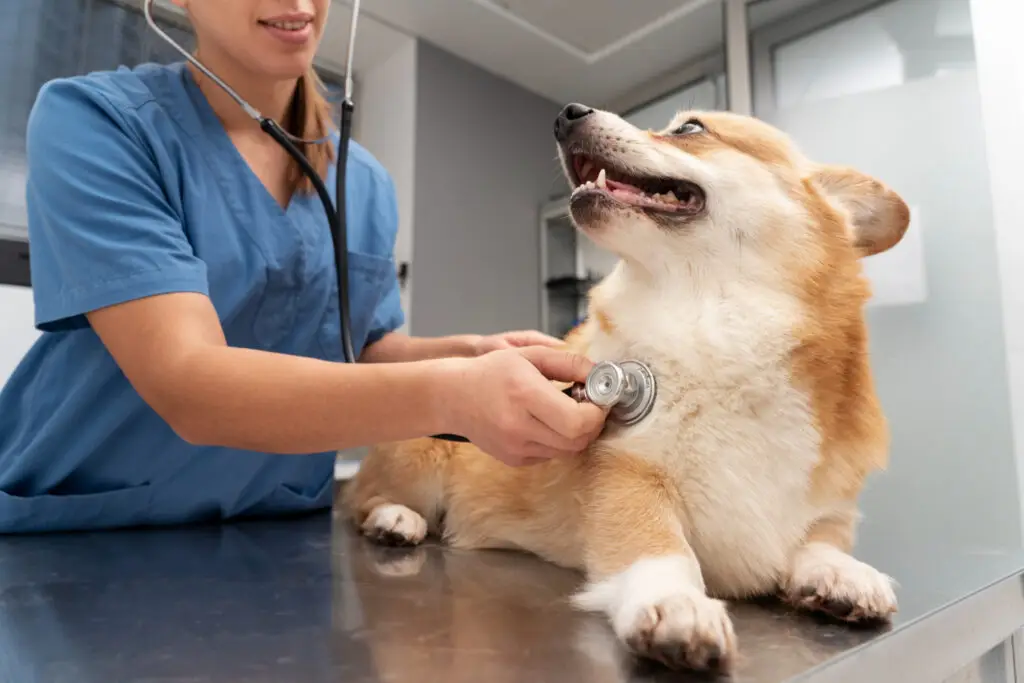Lost pets come home with Peeva.
Track Your Dog’s Health Like a Pro: Easy Tips for Keeping Canine Health Records
Keeping track of your dog’s health is super important.
Just like we have medical records, our dogs need them too. Detailed health records can help you and your vet understand your dog’s health better. They’re useful for tracking vaccinations, medications, and any health issues that come up. Plus, having all this info handy can make vet visits a breeze.
When your dog is sick or injured, having a record of their health history can make a big difference. You’ll know exactly when they had their last shot or if they’ve had any past issues that might explain their symptoms. It’s all about being prepared and making sure your furry friend gets the best care possible.
Did you know that Peeva is the world’s first and only pet microchip registry with unified pet electronic health records?
What is a Canine Health Record?
A canine health record is like a diary for your dog’s health. It includes all the important stuff like vet visits, vaccinations, medications, and any illnesses or injuries. Think of it as your dog’s health history. Having a complete record helps you spot patterns and catch problems early. It’s a must-have for every dog owner.
Your dog’s health record should cover everything from their birth to the present day. This includes their basic info like name, breed, age, and microchip number. It should also list any medical treatments they’ve received, whether it’s a routine check-up or an emergency visit. Keeping track of this information helps ensure that your dog stays healthy and happy.
Why is this so important? Well, imagine you’re at the vet, and they ask about your dog’s vaccination history. Instead of guessing, you can pull out your dog’s health record and give them exact dates. This helps the vet provide better care and make informed decisions about your dog’s treatment.
Setting Up Your Canine Medical Record

Starting a canine medical record is easy and super helpful. Here’s what you should include:
Basic Information:
Your dog’s name, breed, age, and microchip number.
Vet Visits:
Date, reason for visit, and any treatments or advice given.
Medications:
Name, dosage, and schedule for any meds your dog is taking.
Vaccinations:
Dates of shots and when they’re due for boosters.
Health Issues:
Any illnesses, injuries, or surgeries, along with treatments and outcomes.
You can keep these records in a notebook, a digital app, or even a spreadsheet. Digital records are great because they’re easy to update and you can share them with your vet. But if you prefer paper, that’s totally fine too. Just make sure you keep everything organized and up-to-date.
For digital records, there are plenty of apps designed specifically for pet health. These apps can send you reminders for vet appointments and medication schedules. If you’re more of a paper person, consider using a binder with sections for each type of information. This way, you can easily flip through and find what you need.
It’s also a good idea to keep copies of important documents, like vaccination certificates and receipts from vet visits. These can be helpful if you need to provide proof of vaccination or track expenses. Being organized with your dog’s health records can save you a lot of hassle in the long run.
Regularly updating your dog’s medical record is key. After every vet visit, take a few minutes to jot down what happened and any instructions you received. This helps ensure that nothing slips through the cracks and that you always have the most accurate information on hand.
Puppy Health Record
Puppies need special attention when it comes to health records. They have a lot going on in their first year, with multiple vet visits, vaccinations, and milestones to track. Keeping a detailed puppy health record helps you stay on top of everything and ensures your puppy gets the best start in life.
Here’s what you should include in a puppy health record:
Growth:
Regular weight and height measurements to ensure they’re growing properly. Note any changes in their eating habits or energy levels.
Vaccinations:
Puppies need several shots to protect them from diseases. Record the dates and types of vaccines they get. This includes shots for distemper, parvovirus, rabies, and more.
Milestones:
Note important milestones like teething, socialization stages, and any behavioral changes. This helps you track their development and notice any potential issues early.
By keeping track of these details, you can make sure your puppy is growing up healthy and strong. Plus, it makes it easier to answer your vet’s questions and get the right advice for your pup’s care.
Using a Canine Health Record Printable
Printables can make keeping track of your dog’s health super easy. They’re ready-made templates where you just fill in the blanks. Here’s why they’re great:
Easy to Use:
Just print and start filling out.
Organized:
They help you keep everything neat and tidy.
Accessible:
You can find printables online from reliable pet care websites.
When you find a good printable, print a few copies. Keep one for vet visits and another at home. Fill in all the details as soon as they happen so you don’t forget anything.
Using a printable can help you stay on top of your dog’s health without much effort. It’s like having a checklist that ensures you don’t miss anything important. You can find printables for general health records, vaccination schedules, medication logs, and more. Pick the ones that suit your needs best.
Canine Vaccination Record

Vaccinations are a big part of your dog’s health. They protect your pup from serious diseases. Here’s what to include in a vaccination record:
Vaccine Name:
The type of vaccine given. Common vaccines include those for rabies, distemper, and parvovirus.
Date Given:
When the shot was administered. This helps you track when each vaccine was given and plan for future ones.
Booster Due Date:
When the next shot is needed. Vaccines often require booster shots to remain effective, so it’s important to know when these are due.
Keeping a canine vaccination record ensures your dog stays up-to-date on all their shots. You can also set reminders for booster shots to make sure they never miss one. This is especially important for puppies, who need multiple vaccinations in their first year.
A vaccination record can be as simple as a list in a notebook or as organized as a printable chart. Whatever method you choose, make sure it’s easy to update and access. You might also want to keep a copy of the record with your vet in case you lose yours.
Maintaining and Updating Your Canine Health Records
Keeping your dog’s health records up-to-date is super important. Regular updates ensure you always have the latest info on your dog’s health. Here’s how to do it:
After Vet Visits:
Update your records with any new treatments, advice, or follow-up appointments. Note down anything the vet mentions, like changes in diet or activity levels.
Medications:
Record any changes in medication or dosage. This includes new prescriptions, discontinued meds, and any side effects you notice.
New Health Issues:
Write down any new symptoms, illnesses, or injuries as soon as they happen. Include details about what happened, how your dog is feeling, and what treatment they’re getting.
By staying on top of updates, you’ll always have an accurate picture of your dog’s health. This makes it easier to spot trends and catch problems early.
Tips for Keeping Accurate Records
Accurate records are essential for your dog’s health. Here are some tips to help you keep everything in check:
Be Detailed:
Write down as much information as possible. The more details, the better. Include dates, descriptions, and any advice from your vet.
Stay Consistent:
Update your records regularly to avoid missing anything. Make it a habit to jot down notes after every vet visit or when you notice something new.
Keep Them Accessible:
Store your records in a place where you can easily find them. Whether it’s a physical binder or a digital file, make sure it’s easy to access and update.
Keeping detailed health records for your dog is one of the best things you can do for their well-being. It helps you stay organized and ensures your pup gets the best care possible. Start a canine health record today and track your dog’s health like a pro! Your furry friend will thank you. Happy record-keeping!
Peeva: Where Lost Pets Find Their Way Home
Transform your pet’s microchip into a lifeline. 24/7 phone support and lost pet alerts ensure your pet gets the help they need, when they need it.
You Might Be Interested In
- Health, Wellness, Nutrition, Microchipping






